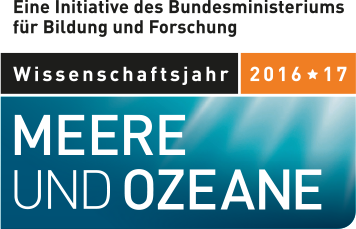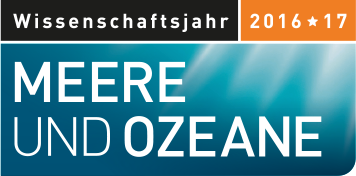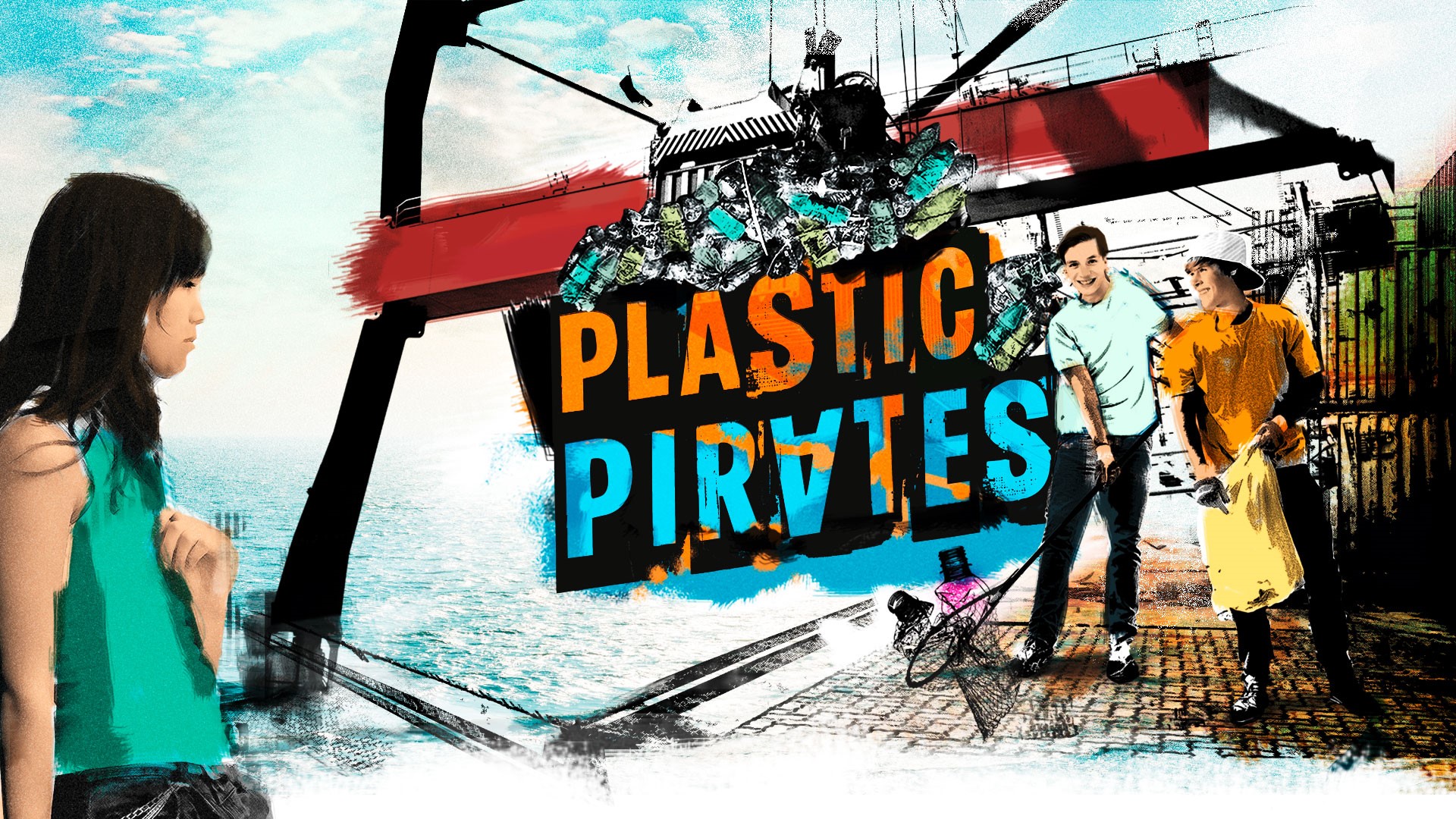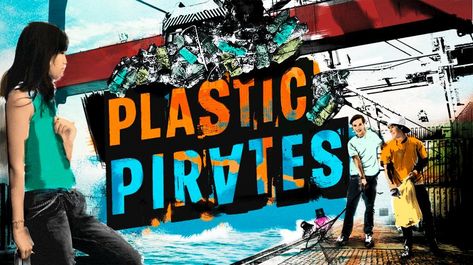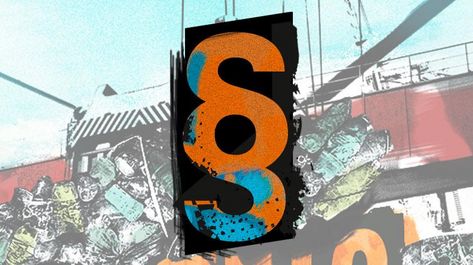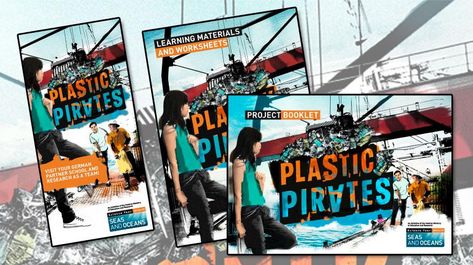Collecting data for science
“Plastic Pirates” – young people aged 10 to 16 working in project groups – collected data on plastic litter in and along waterways throughout Germany. How much and what types of plastic litter have been found? Where were particularly large amounts of waste piling up? What role played velocity and depth of water? The "Plastic Pirates" used scientific methods to filter, count and document the results on a digital map of Germany.
The data has then be processed by the Kiel Research Workshop (Kieler Forschungswerkstatt), where researchers will draw conclusions as to which river sections are especially polluted with plastics and how pollution builds up from the river source to the river mouth. This will allow protection measures to be developed which will not only benefit the rivers and oceans but ultimately also us.
“Plastic Pirates” is a citizen science campaign which contributes to research on the distribution of macro- and microplastics along German rivers. Citizen science projects allow interested people to get involved directly in the research process, and means that scientific professionals work hand in hand with the general public.
The conditions for participation can be found here.
Key Dates
Research period: Sampling from the 1st of May to the 30th of June 2017.
Deadline for data input: Research data had to be entered into the map by the 15th of July 2017.
You can find frequently asked questions (FAQs) here.
Bilingual research cooperation
Pupils from schools in Britain and Northern Ireland were invited to come to Germany during the sampling period (May 1st to June 30th) to become part of this exciting and informative experience. British "Plastic Pirates" could pursue key questions related to the environment and strengthen their partnerships with their German partner schools during a joint project week. Travel and accommodation costs for the first ten UK school classes with a German partner school will be reimbursed. Don't miss this great opportunity to visit Germany for free! Applications for reimbursement have to be submitted via the German partner school.
Please note that costs for substitute teachers in the UK to cover for the absence of regular teachers cannot be paid.
All participating schools were responsible for all organisational duties related to the visits, including logistics, risk assessment and travel insurance.
The United Kingdom and the Federal Republic of Germany have cooperated on marine research for many years. The UK is now Germany’s partner country in Science Year 2016*17, in which our two countries are working to jointly explore, use and protect the seas and oceans.
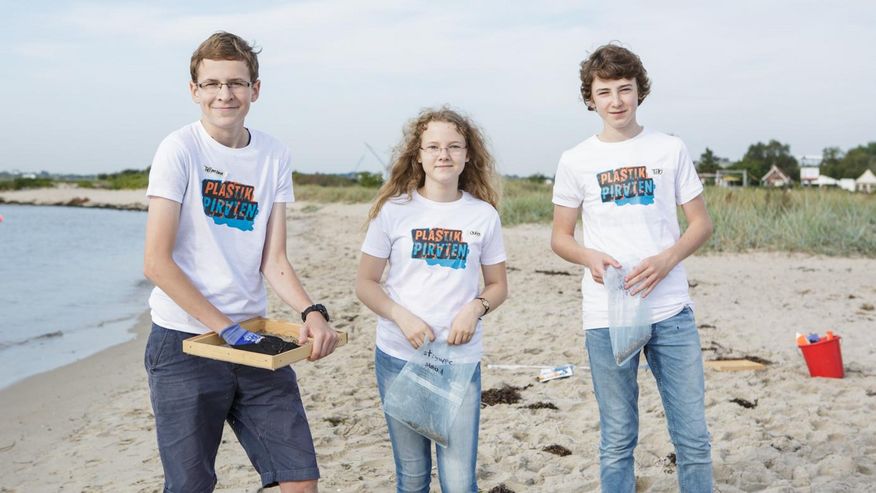
Plastic Pirates on DW.com
Deutsche Welle (DW) is Germany's public international broadcaster. They reported on Plastic Pirates in northern Germany.
Frequently Asked Questions (FAQs)
For pupils
What is citizen science?
Citizen science projects allow interested people to get involved directly in the research process, and means that professional scientists work hand in hand with the general public. “Plastic Pirates” is a citizen science campaign which records information about what is known as macro- and microplastic waste along German rivers.
I am a pupil at a school in the UK – How can I take part in the campaign?
Does your school have a partner school in Germany? If so, the chances are good that you can take part. Talk to your teacher about the campaign. If you want to set up a project group, your teacher only has to get in touch with your German partner school. If it is taking part in the campaign it can contact us and we will then contact us and we will in turn help you plan your research trip to Germany.
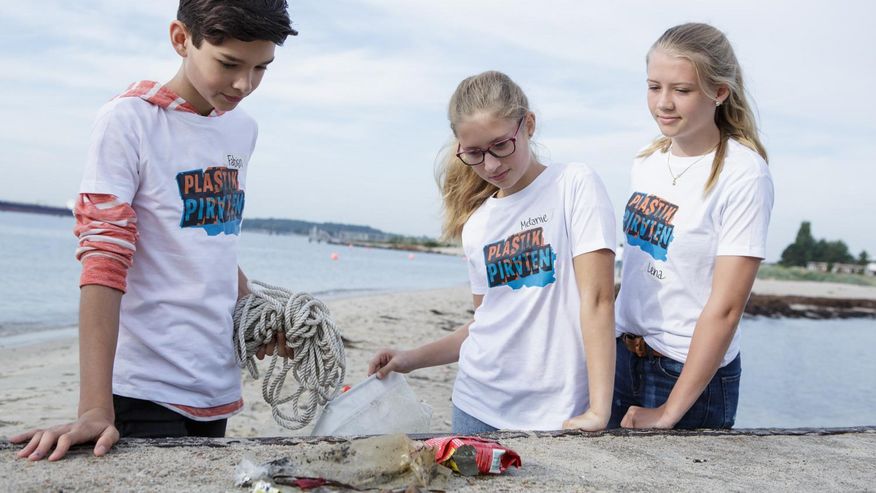
Who is responsible for the research work on the scientists' side?
The Kiel Research Workshop is a laboratory for pupils at all school year levels and is our partner in this project. Pupils and experts will jointly evaluate the collected data under the stewardship of Dr Martin Thiel (who is a Professor of Marine Biology at the Universidad Católica del Norte in Coquimbo, Chile). The Kiel Research Workshop is supported by the "Future Ocean" Cluster of Excellence network and the Leibniz Institute for Science and Mathematics Education which are both located at the Christian-Albrechts-University in Kiel.
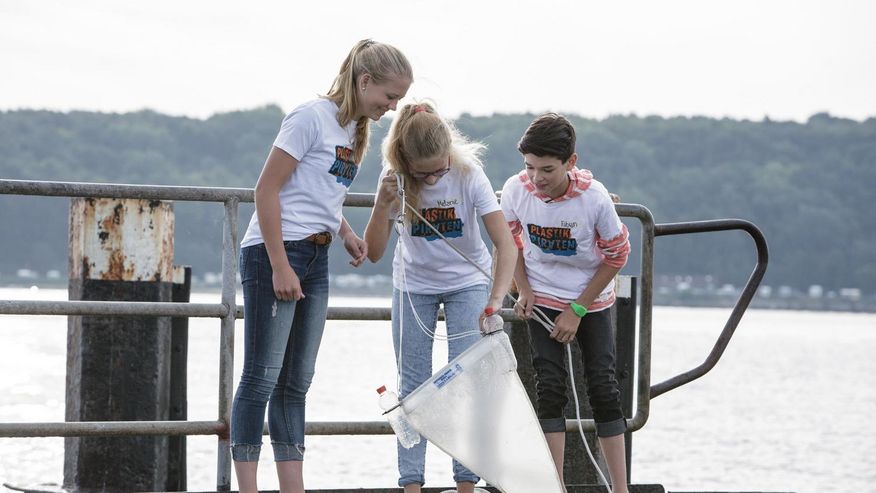
What constitutes a project group?
A project group consists of at least six pupils who will choose a distinct name for their exploration team. On the day of the excursion they will follow the instructions described in their working material.Young people from the UK can only take part as part of a school class and if they work together with a German partner school. During the project phase, the group will be split up into five to six smaller groups which will be assigned different types of research work described in the campaign book.
Can I participate as an individual?
The "Plastic Pirates" campaign is a joint scientific venture for a simple reason: An individual person could hardly manage the scientifically challenging task within such a short time. Also cooperating and networking is a particularly important element of the campaign. That is why individual participants are not allowed to take part in the campaign.
How will the data be collected?
You will take samples during a research trip to a river or similar waterway. Up to six smaller groups can take part in the hunt for plastic waste. You can find out more about how that works and what you have to bear in the learning materials and worksheets.
What tasks do we have to perform?
The work of the project group – ranging from measuring the flow speed of the water and taking samples near the riverbank and in the water to the meticulous recording of the data – has to comply with scientific standards. Learn more about the details of your tasks in the learning materials and worksheets.
How will we submit the data?
You will need to upload your data online on the German "Plastic Pirates" website. You can find all the details at the end of the Campaign Workbook.
Where will I be able to find the results of all the data samples?
All the data will be entered into a digital map of Germany. You can find this map on the German website only.
Are there any conditions for participation?
Yes, the "Plastic Pirates" campaign involves certain rules that have to be met, if only to ensure that the data you collect is scientifically reliable.
The most important rules are the following:
The campaign will take place from the 1st of May until the 30th of June 2017, which means that all research projects must be completed by the end of this period (in other words, all samples must have been taken by this time). Research data must be uploaded by the 15th of July 2017. Once this has been done your data will be made available to the scientists working at the Kiel Research Workshop under the stewardship of Professor Martin Thiel.
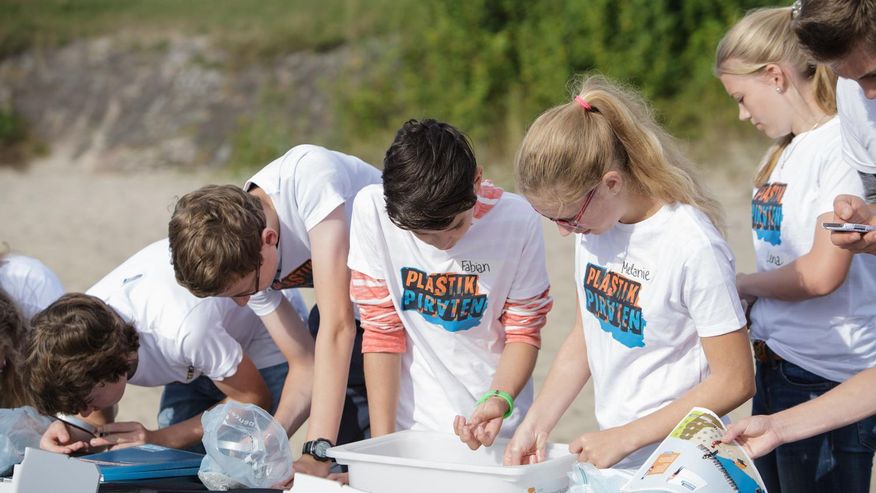
Are there any deadlines?
The most important dates to remember are the start and end of the campaign on the 1st of May and the 30th of June and the latest possible date to upload your data on the 15th of July.
What is the duration of the campaign?
The campaign will take place from the 1st of May until the 30th of June and the latest possible date to upload your data is the 15th of July.
What age restrictions apply to "Plastic Pirates"?
You can take part in the campaign as long as you are aged between 10 and 16 and apply as part of a German-British project group
For group leaders and teachers
What is the maximum group size for participating in the campaign?
A project group must comprise at least six and a maximum of 30 pupils. There are a total of six group activities described in the campaign book. Pick the tasks to be fulfilled and divide the pupils into the activity groups accordingly.
Which school subjects are suitable for participation in the campaign?
Of course, the classic science subjects such as biology, geography or physics are particularly suitable, but arts subjects, too, can address relevant issues. The action is deliberately designed in such a way that it can be dealt with jointly from the point of view of several different school subjects (for example as part of a dedicated project week).
What duties of supervision apply to the excursion?
There is no difference between the joint work carried out in the research field and other school trips and the supervisory responsibilities those excursions entail in Germany. In accepting the terms of participation, schools, clubs or other participating organisations assume full responsibility for the participating pupils from Germany and the UK.
Contact:
Editorial Office Science Year 2016*17 - Seas and Oceans
Gustav-Meyer-Allee 25, 13355 Berlin, Germany
Tel.: +49 30 81 87 77-166
Fax: +49 30 81 87 77-125
Email: plasticpirates(at)scienceyear.de
Office hours: Mon to Fri 9 am to 1 pm and 2 to 6 pm (UTC+1)
